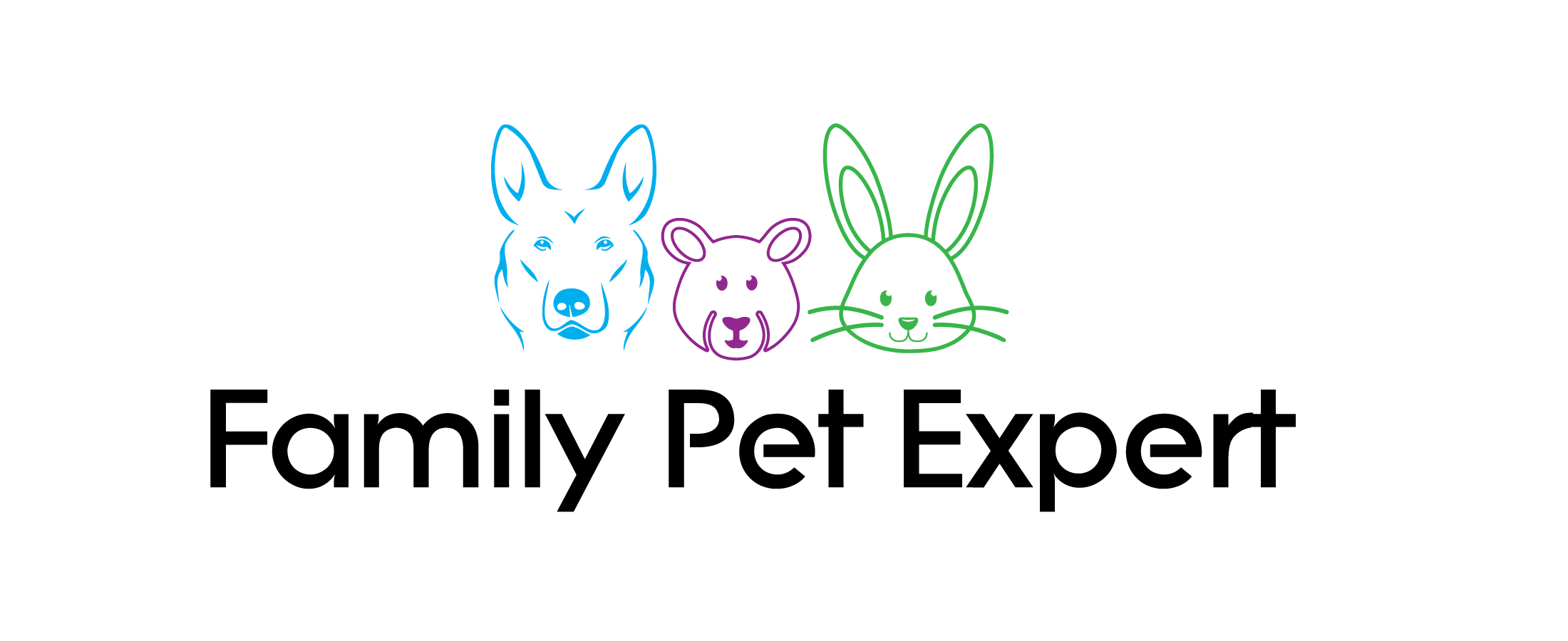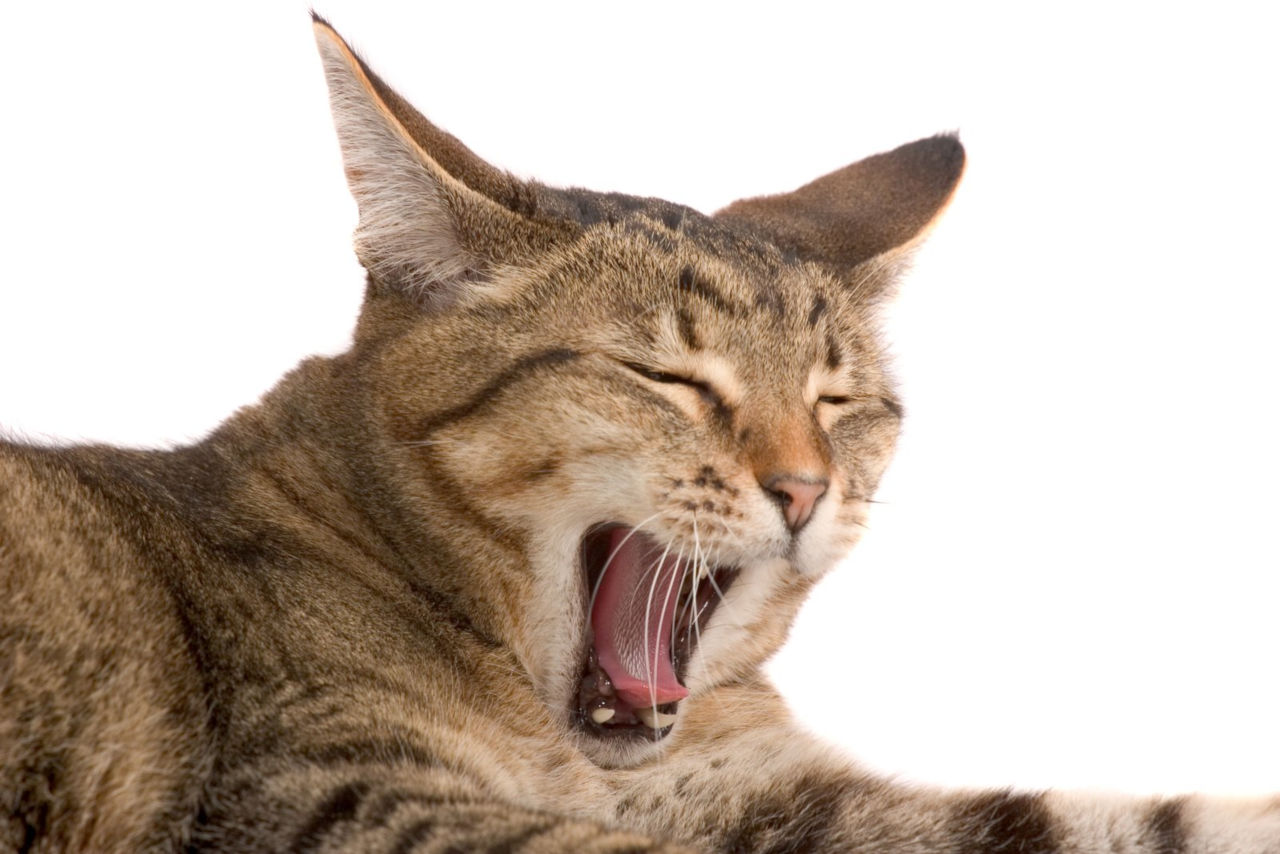Yawning is a basic, involuntary behavior. Scientists haven’t figured out the exact reason cats yawn, however, despite how common it is. However, some theories about why your cat yawns when it sees you are worth considering.
Cats yawn when they feel content and comfortable. In this way, your pet shows that it feels utterly relaxed in your presence. By yawning, the cat takes in more oxygen and becomes more alert. This allows her to recharge her energy to spend time with you. Of course, some cats are just sleepy.
Some experts believe that a cat’s yawn is a unique form of communication. It serves as body language to get your attention without sounding a meow.
In most situations, however, the occasional yawn means the cat is relaxed.
Why Do Cats Yawn When They See Someone?
You might assume that your cat is just tired and resting for the day. However, yawning becomes more suspicious when it is directed only at you.
Perhaps your cat only seems to yawn when you enter the room or when you come home from work. If the cat yawns only when she sees you, or at least more often, then it may mean the following:
- She trusts you and feels safe enough in your presence to relax.
- She is happy to see you and wants energy to play.
- She is signaling to you that she is tired and wants to rest.
The first two reasons mean that the cat appreciates you and cares about you. The last reason is that the cat is tired and wants to retire.
What your cat means depends on how it behaves before, after, and during the yawn.
The Cat is Cozy and Content
Cats are naturally alert creatures that can detect both predators and prey. Anxious or distressed cats do not yawn, much less try to sleep where they can be easily found.
If your cat walks up to you and yawns, it’s her way of letting you know she feels secure and safe.
If you’ve been out all day while your cat awaits you, she will usually yawn when you get home.
This shows that she is content and ready to let you feed and pet her and play with you.
Such yawning is often accompanied by other feline behaviors that express contentment. These include, but are not limited to:
- Circling your legs
- Rubbing your legs
- A few short meows
The Cat is Trying to Wake Up
Yawning is the cat’s way of gathering energy before becoming active.
Cats start yawning and stretching as soon as they get up after a nap. This helps relieve muscle tension and reoxygenates the brain.
When yawning, carbon dioxide is expelled from the body while oxygen is taken in. Once the oxygen reaches the brain, it heightens the cat’s senses, making it alert and awake.
So when a cat yawns when it sees you, it is doing so to become alert and awake.
This may mean the cat was about to lie and sleep but changed its mind. The cat decided instead to stay awake and play with you.
It can also mean that the cat was napping but wanted to wake up quickly to eat or be petted.
When your cat yawns, it is fighting its instinct to fall asleep to be in your company. This is an excellent compliment for such an independent animal.
The Cat is Very Tired
What if your cat yawns at you and then falls asleep? Cats yawn when tired but haven’t entirely accepted that they want to sleep now.
Since cats are experts at conserving energy, this is an important clue. The cat didn’t just fall asleep and ignore you, as her instincts might have suggested. She stayed awake and yawned when you entered the room.
Remember that cats have excellent hearing and perceive sounds with a sound pressure level of 70 dB between 48 Hz and 85 kHz. This gives them one of the broadest hearing ranges of any mammal.
It is no problem for your cat to recognize when you enter a room. She may have lifted her head, looked at you, and yawned to make it clear that she is settling down to sleep.
She doesn’t want to be disturbed, and she doesn’t want to be accidentally awakened. This could be another sign that a cat is giving you orders.
But it could also be a sign of politeness because the cat doesn’t want to move away from you or get grumpy if you wake it up later.
Either way, if the cat found you boring, it wouldn’t have bothered to fight off sleep long enough to yawn at you.
Why Do Cats Yawn When Looking at Them?
Perhaps you are sitting nearby, and your cat is acting normally. Then you look over at her, and she decides to yawn for no apparent reason.
She doesn’t go to sleep after that, and she doesn’t try to play. So, it seems more like a signal. In fact, it may be.
The cat may have been waiting for you to make eye contact because it wanted to tell you something.
The Cat Wants Attention
Some cats yawn to get attention. This is particularly true if they meow, hiss, growl, or make other some noise after yawning.
Instead of signaling relaxation or sleepiness, the cat has stretched its jaw or made a movement to get your attention.
It is sometimes more difficult for older cats or young kittens to make a sound. The cat may have started to meow but didn’t quite hit the note.
Some cat owners suspect that cats also yawn to communicate. Cats actually rely primarily on their body language to convey their intentions.
In fact, as adult cats, they have been known to meow only to humans and not to each other.
Although there is no official research to confirm or deny this, your cat may also be using basic body language to get your attention.
Subtle Medical Problems
If your cat yawns once or twice a day, even when not tired, it is not a cause for concern. Trying to get your attention this way is not an overly typical behavior, but it does happen.
It becomes problematic if your cat yawns frequently throughout the day, at random moments, or several times in an hour. This may indicate that she is uncomfortable or has an injury.
Tooth Pain
If your cat can’t close her mouth, she may be suffering from a toothache.
She may also open and close her mouth and open her jaw wide as if yawning because she is trying to relieve discomfort.
Gum disease and toothaches are common in cats. You should watch for other symptoms to determine if this is the reason for the unexplained yawning.
Possible symptoms of tooth pain in cats include:
- Loss of appetite
- Drooling on one side of the face
- Bad breath
- Inflamed or discolored gums
- Covering mouth or face with a paw.
Toothaches will not go away on their own. You must bring your cat in for an exam, dental cleaning, and possibly dental surgery.
Breathlessness
If your cat’s breathing is exceptionally shallow, he may be unable to breathe properly. Therefore, the wide opening of the mouth is mistaken for a yawn.
Shortness of breath is a clear indication that something is wrong.
If your cat is yawning frequently, you should monitor her breathing. She may be trying to take in more oxygen.
The average cat breathes between 15 and 30 times per minute. If your cat has just been exercising, she will breathe faster.
However, her breathing rate should be within this range when she relaxes.
Hypercapnia
Hypercapnia is a medical condition in which carbon dioxide levels in the body are high.
By yawning frequently, your cat may be trying to move this carbon dioxide out of her body to replace it with oxygen.
As a result, your cat’s blood flow may be compromised. Your cat may even begin to hyperventilate.
Hypercapnia requires urgent treatment, which may include the use of an artificial respirator.
Why Do Cats Yawn When You Pet Them?
Cats yawn when they are tired but can’t quite fall asleep yet. If you pet the cat at a gentle, leisurely pace, it is very relaxing.
It makes the cat feel comfortable, cozy, and safe. All of this is a perfect recipe for putting the cat to sleep.
The cat may even yawn to stay awake. This is because when she is awake, she can better enjoy your petting.
Some cats will also get up and reposition themselves to stay awake. Others give in and drift off to sleep.
Either way, yawning means you are treating your cat well, and she is enjoying it.
Do Cats Yawn When They Are Satisfied?
If all of a cat’s needs are met, and it feels comfortable and safe in your home, it will be more likely to yawn when you are around.
An anxious cat would be more focused on staying alert and not showing a weakness like fatigue.
My Cat Meows and Yawns at the Same Time
If your cat meows while yawning, it is most likely just a reflex. She is trying to exercise her throat, jaw, and vocal cords. This is nothing to worry about.
However, if this occurs excessively often, there may be an underlying medical problem. Pay attention to whether your cat is showing any strange symptoms besides this, such as difficulty swallowing or bad breath.
My Cat Yawns When I Yawn
Although it’s rare, you may notice that your cat yawns when you yawn. After all, it is said that yawning is contagious, especially in humans, because it is a form of empathy.
Even some species of animals have this trait. Are cats one of them?
Researchers studied a group of cats to see if there was a link between yawning and empathy.
They concluded that there was no significant correlation. Sometimes the cats mimicked their owners, and sometimes they didn’t.
There didn’t seem to be a direct correlation. Nor was there any evidence that yawning was caused by empathy.
Presumably, this is because modern domestic cats descended from isolated ancestors that did not form large colonies.
Without this socialization in their history, cats did not develop as many empathy-based responses as other social creatures.
If your cat yawns when you yawn, it’s probably just a coincidence.
Your cat could also be the odd out, having learned to mimic your actions. This is especially true if you pet or feed them right after this trick.
That being said, the above study is just one of many that are still poorly researched. As science advances, more findings may indicate that your cat is yawning precisely because you are.
Why Does My Cat Yawn So Much?
If your cat is getting enough sleep and yet yawning constantly, it’s worth taking a closer look. Excessive yawning is a sign of oral disease in cats.
Stomatitis, for example, is a disease in cats that causes severe mouth and throat inflammation.
When cats have severe pain in this area, they sometimes yawn a lot to relieve it. A cat with such a problem may yelp and jump up every time it tries to yawn.
Cats with mouth problems may also exhibit the following symptoms:
- Clenching of the teeth
- Foul-smelling breath
- Heavy drooling, especially on the side of the face.
- Difficulty swallowing food
An occasional yawn is a good sign. It can indicate joy, excitement, and a sense of security.
You can enjoy that the cat is comfortable enough with you to show how exhausted it is.


